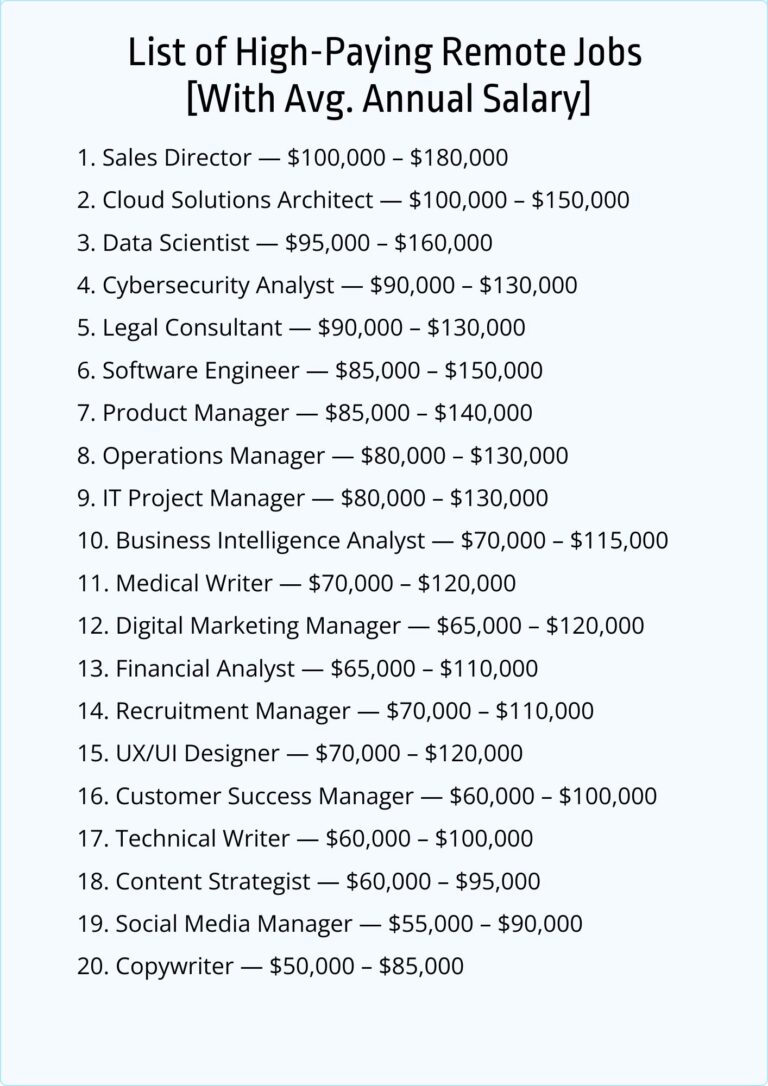Top Careers in Financial Technology: Unlocking Opportunities in the Digital Finance World
Financial technology, or fintech, is revolutionizing the way people and businesses manage their finances. With the rapid adoption of digital payment systems, blockchain technology, robo-advisors, and artificial intelligence, fintech careers are booming. Whether you’re a tech enthusiast, finance professional, or someone interested in the intersection of both fields, the world of fintech offers exciting opportunities for growth and innovation. From developing cutting-edge financial solutions to shaping the future of digital banking, the fintech industry provides diverse career paths that promise to reshape the global economy. In this article, we’ll explore some of the top careers in financial technology and how you can break into this thriving field.
Fintech Software Developer: Building the Future of Finance
A fintech software developer is at the heart of the industry, creating the software that powers digital financial services. These developers build applications and systems for everything from online banking to cryptocurrency platforms. They are responsible for writing code, testing applications, and ensuring that financial systems are secure, user-friendly, and scalable. Proficiency in programming languages like Python, Java, or C++ is essential for a successful career in fintech software development. As the fintech sector continues to grow, the demand for skilled software developers remains high, particularly those with experience in blockchain, AI, and machine learning. For those who enjoy problem-solving and innovation, this is an exciting and rewarding career path.
Blockchain Developer: Shaping the Future of Digital Transactions
Blockchain technology is at the core of many fintech innovations, and blockchain developers are the driving force behind this transformative technology. Blockchain developers design and implement decentralized systems that allow for secure, transparent, and efficient financial transactions. As cryptocurrency, smart contracts, and decentralized finance (DeFi) continue to gain traction, the demand for blockchain developers has surged. Blockchain developers need to be proficient in languages like Solidity, JavaScript, and Python, and they must have a strong understanding of cryptographic principles and decentralized systems. For tech enthusiasts interested in disrupting traditional financial systems, a career in blockchain development offers one of the most dynamic and high-growth opportunities in fintech.
Financial Analyst with Fintech Expertise: Interpreting Data for Better Financial Decisions
Financial analysts in the fintech space work at the intersection of finance and technology, using data and financial modeling tools to help businesses and individuals make informed decisions. These professionals analyze market trends, investment opportunities, and economic indicators, often using fintech tools to enhance their analyses. With the rise of robo-advisors and algorithmic trading, financial analysts are increasingly leveraging technology to analyze data and create investment strategies. Knowledge of both traditional financial concepts and modern fintech solutions, such as data analytics platforms and AI-powered tools, is essential in this role. As fintech continues to disrupt traditional financial markets, financial analysts with fintech expertise are in high demand.
Product Manager in Fintech: Driving Innovation in Financial Solutions
A product manager in fintech plays a critical role in designing, developing, and launching innovative financial products and services. They oversee the entire product lifecycle, from ideation to launch, ensuring that the product meets the needs of both users and stakeholders. Product managers work closely with software developers, marketing teams, and business analysts to create products that solve real financial problems. In fintech, product managers focus on developing solutions such as digital wallets, mobile payment apps, lending platforms, and investment tools. Strong leadership, problem-solving, and communication skills are key to succeeding in this role. If you’re interested in both finance and technology and have a passion for bringing innovative products to market, a career in fintech product management could be highly rewarding.
Compliance Officer in Fintech: Ensuring Regulatory Adherence in the Digital Finance World
As fintech companies operate in a highly regulated environment, compliance officers play an essential role in ensuring that these organizations meet legal and regulatory requirements. Compliance officers in fintech are responsible for monitoring financial transactions, conducting audits, and implementing policies to prevent fraud, money laundering, and other financial crimes. With the rapid growth of fintech and the increasing complexity of financial regulations, compliance officers with specialized knowledge in fintech laws and regulations are in high demand. These professionals need a strong understanding of legal frameworks, including GDPR (General Data Protection Regulation) and AML (Anti-Money Laundering) standards, as well as a solid grasp of fintech innovations like cryptocurrencies and blockchain.
FAQs
Q1: What skills are required for a career in fintech?
Key skills for a career in fintech include proficiency in programming languages (e.g., Python, Java, Solidity), strong analytical abilities, knowledge of financial regulations, and a good understanding of blockchain, AI, or data analytics.
Q2: How do I get started in fintech?
To start a career in fintech, consider gaining a background in technology or finance, then specialize in fintech-related areas such as blockchain, AI, or digital payments. Pursuing certifications or degrees in fintech or financial technology is also helpful.
Q3: Are fintech jobs high-paying?
Yes, many fintech careers, especially those in software development, blockchain, and financial analysis, offer competitive salaries. The demand for skilled professionals in these areas has driven salary growth in the fintech industry.
Q4: Can I transition from a traditional finance career to fintech?
Yes, transitioning from traditional finance to fintech is possible, especially if you have a strong understanding of finance and are willing to learn new technologies like blockchain, AI, or data analytics. Many fintech companies value financial expertise combined with technical skills.
Q5: What are the growth prospects for fintech careers?
The growth prospects for fintech careers are strong, as the fintech sector continues to expand globally. With innovations in digital banking, payments, blockchain, and AI, there are numerous opportunities for career advancement in this field.

